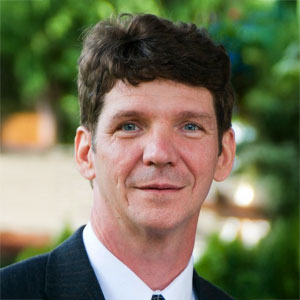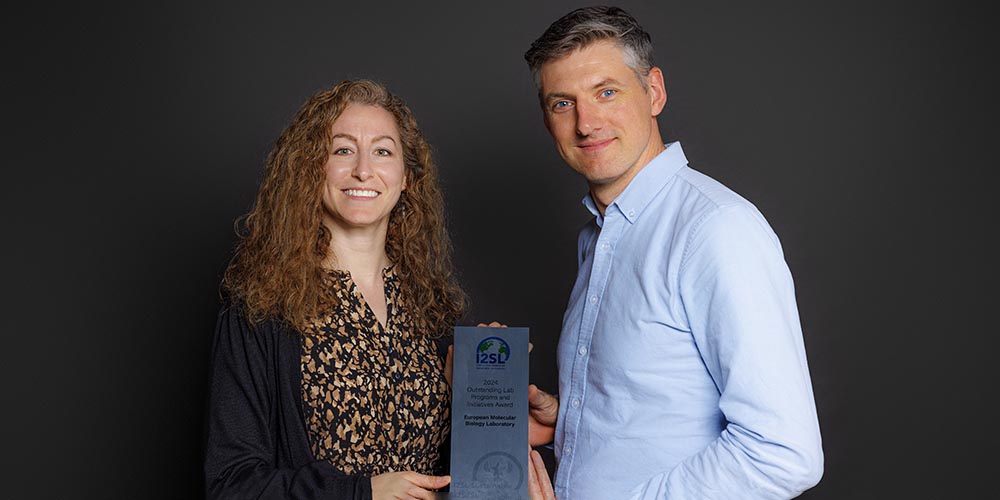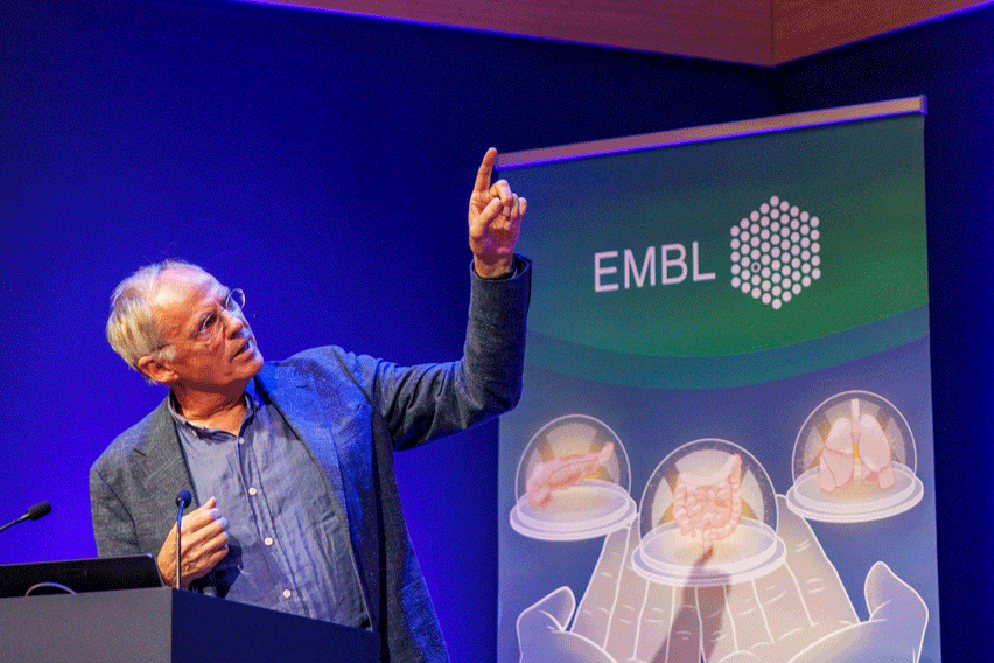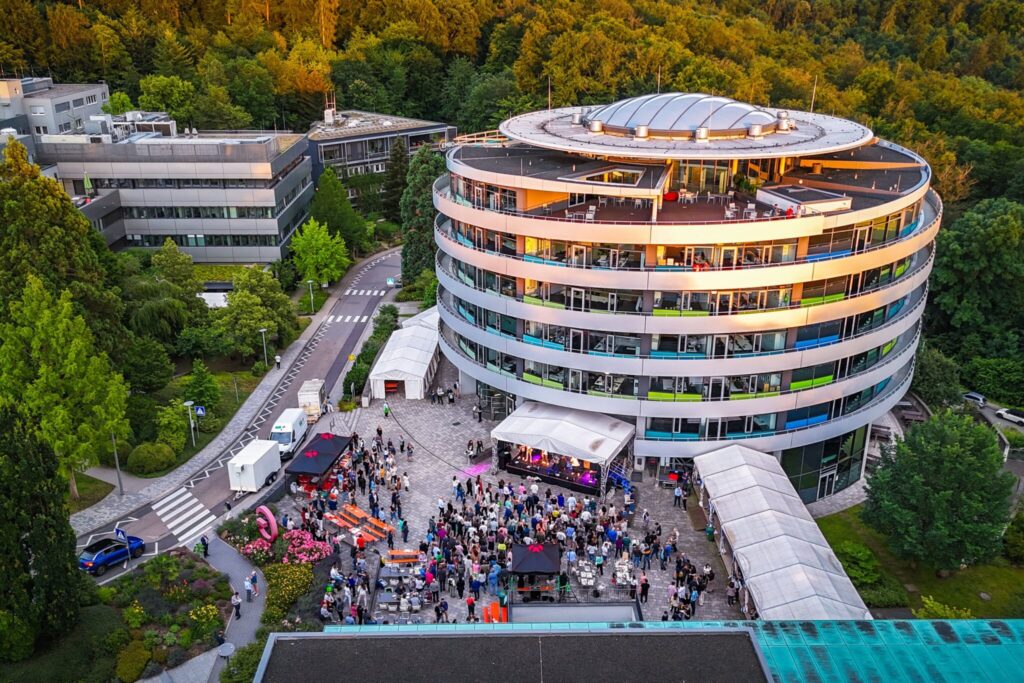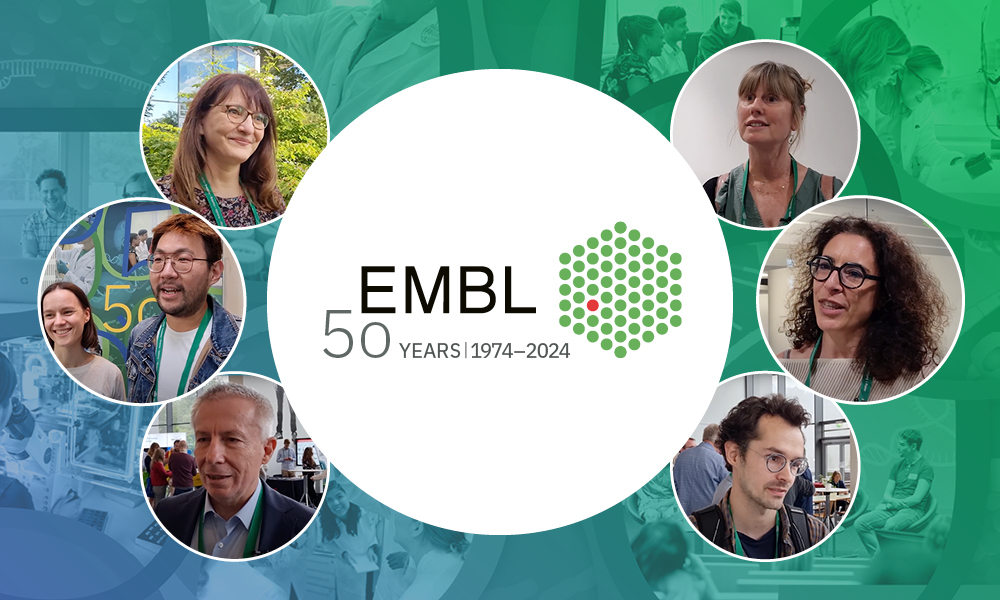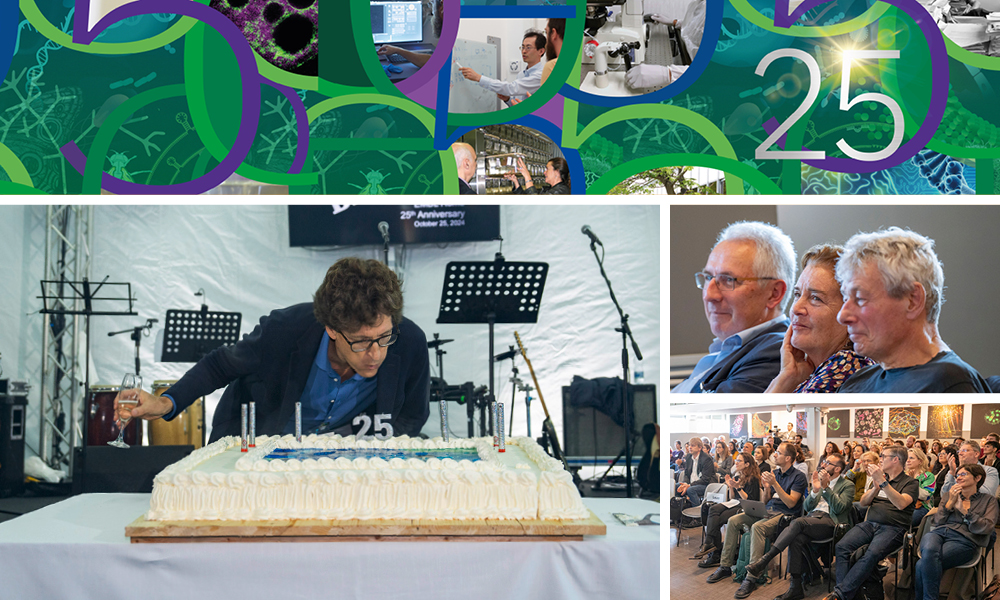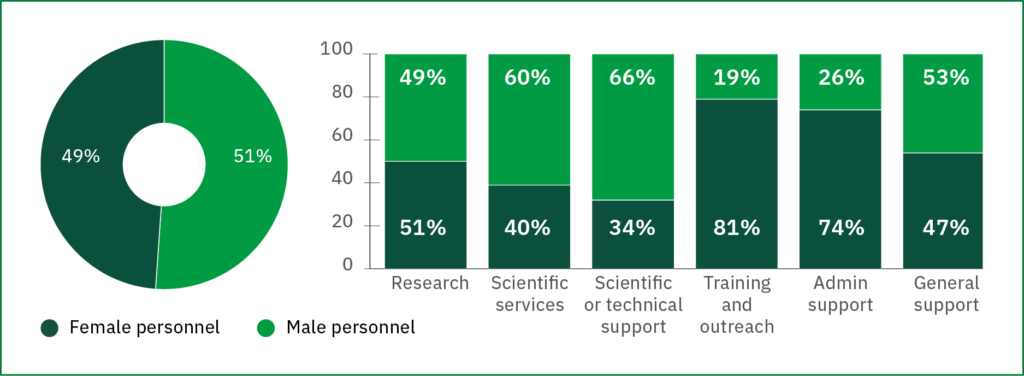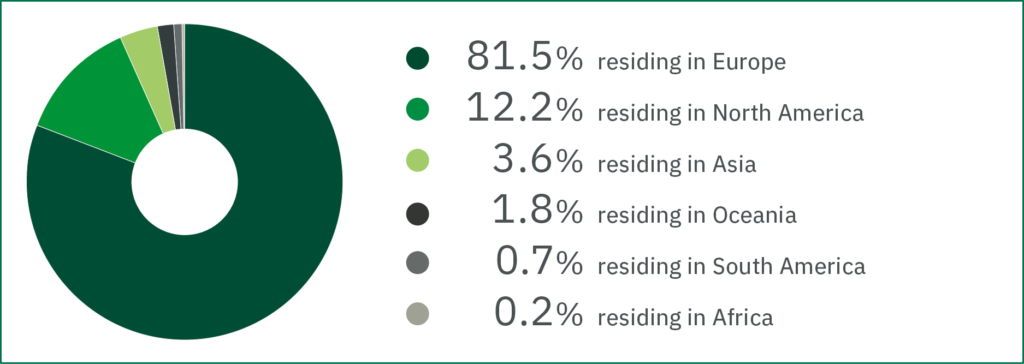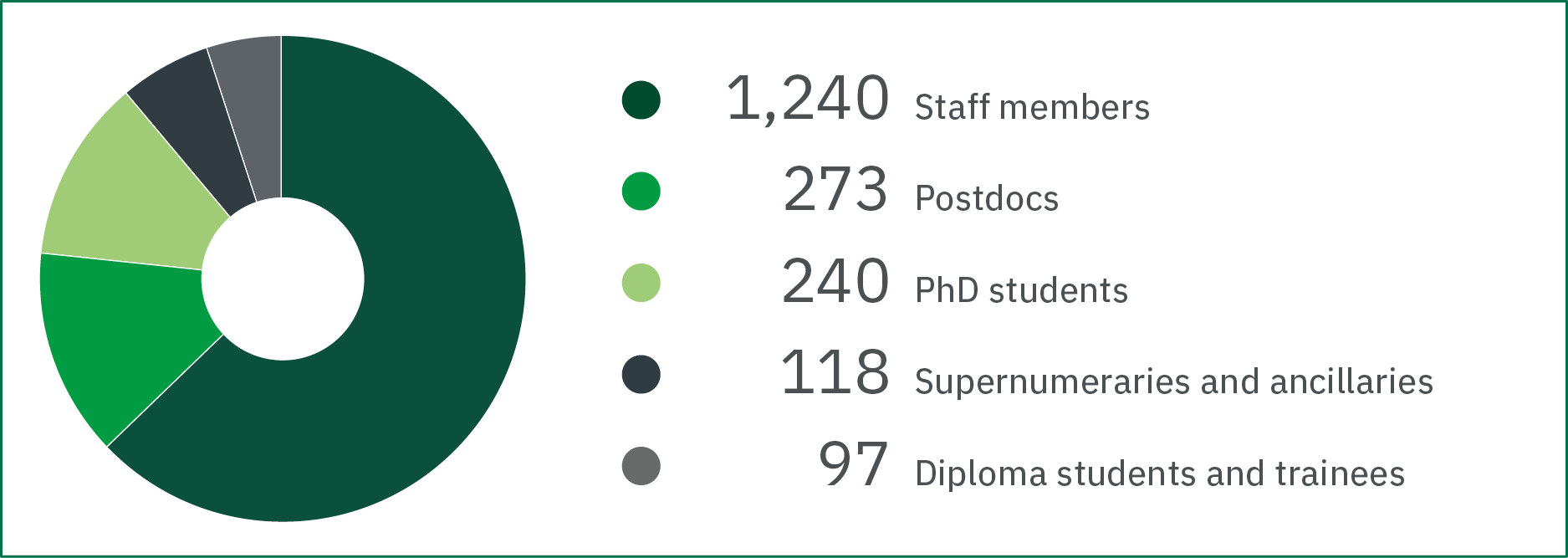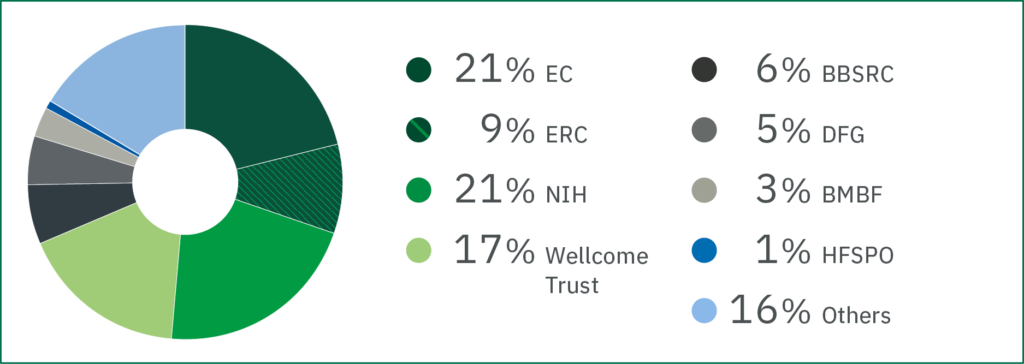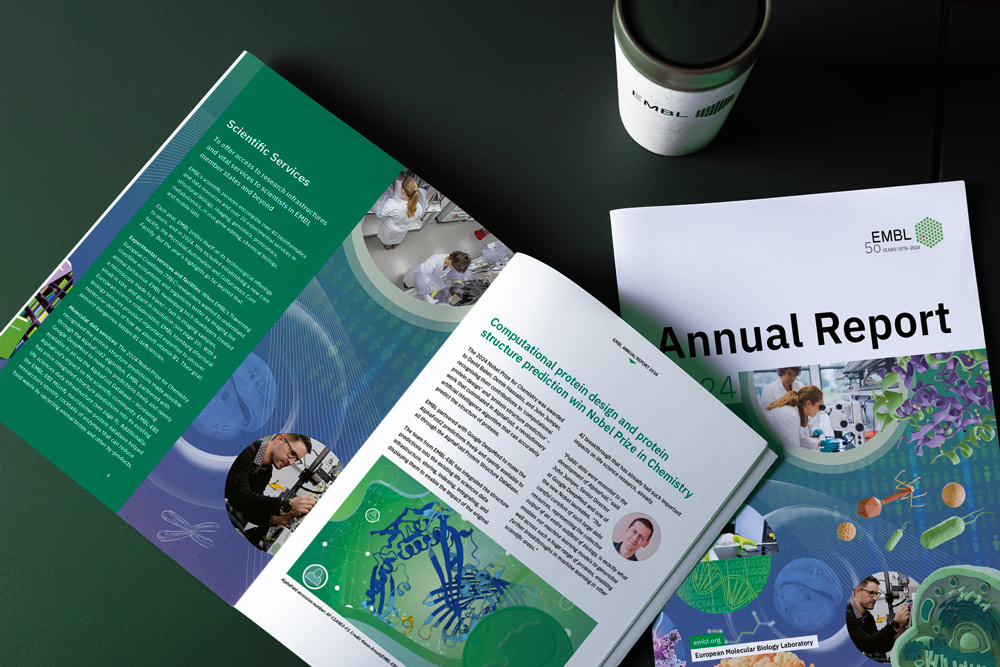
For many people, 2024 will be best remembered as EMBL’s 50th anniversary, with a scientific symposium that brought together its vibrant community, showcased its many scientific contributions, and drove discussions on the future of Europe’s leading life sciences laboratory.
As an intergovernmental organisation that delivers world-class life sciences research, training, and services, EMBL is committed to further modernising operations to ensure its operating model, systems, processes, and facilities support EMBL’s innovative, collaborative culture.
The 50th anniversary scientific symposium brought together the EMBL community from far and wide, especially alumni through the years, many attending remotely. In this section highlighting EMBL’s people, processes, and places, we also feature those people and things that continue to make EMBL successful as a workplace and a hub for doing world-class science.
